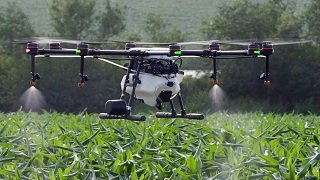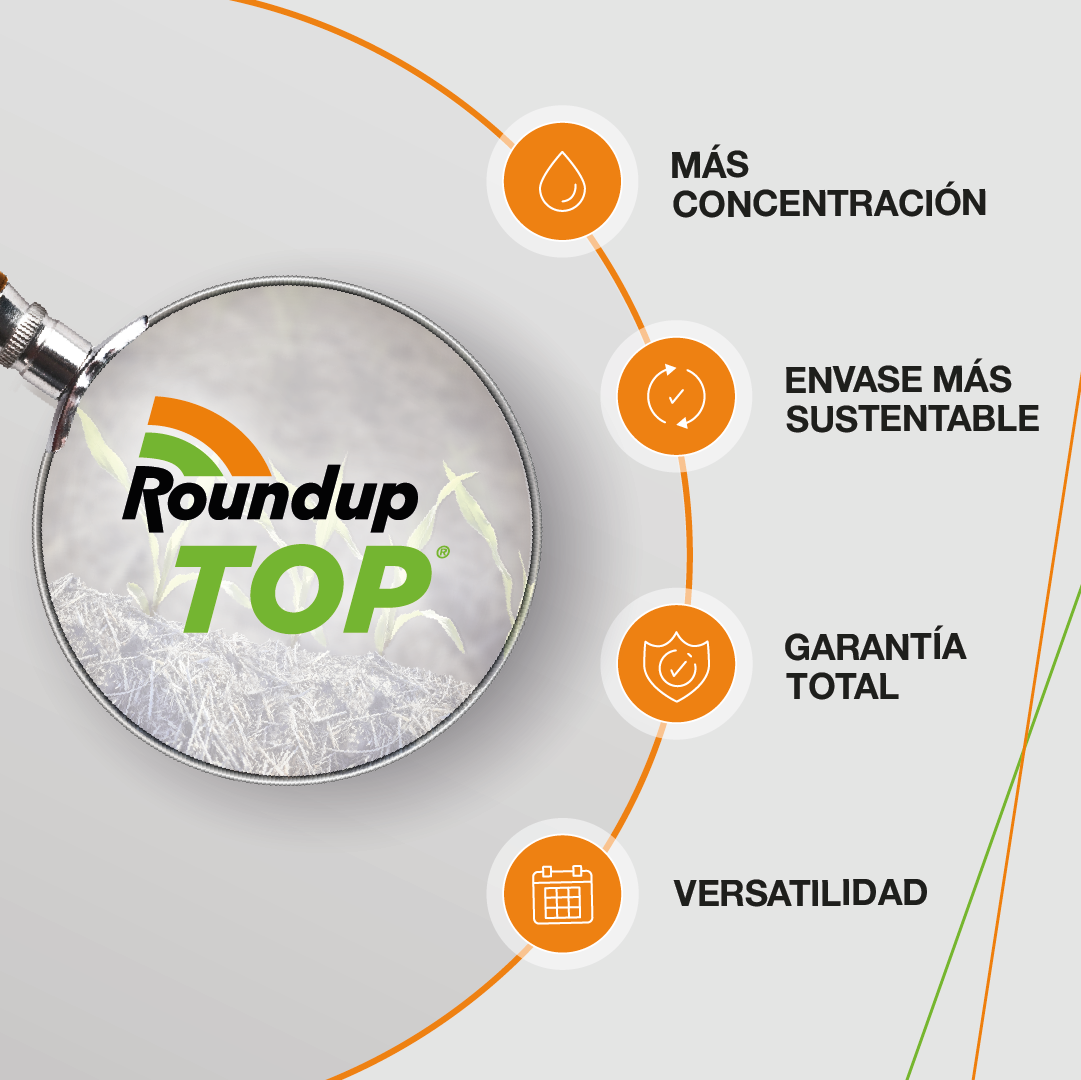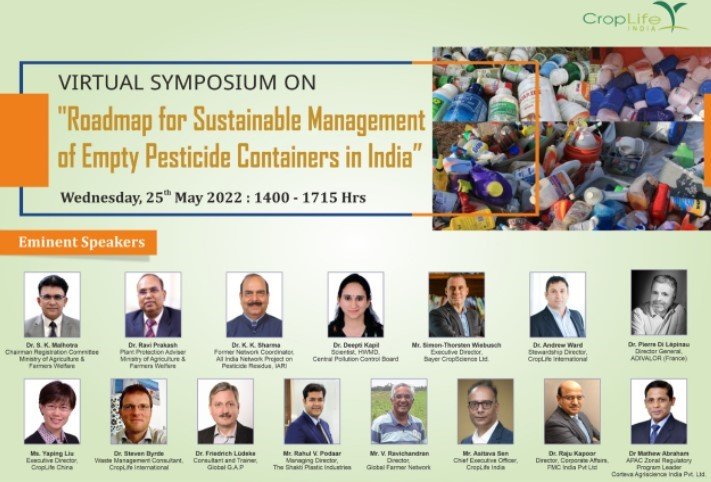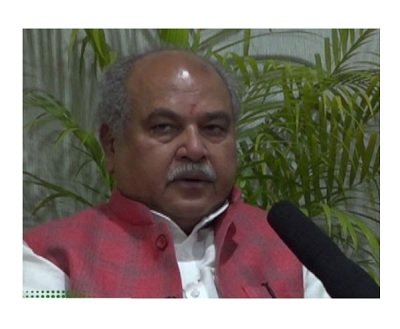As per the data by the Directorate General of Commercial Intelligence and Statistics (DGCI&S), exports of agricultural and processed food products under Agricultural and Processed Food Products Export Development Authority (APEDA) basket rose to $20,674 million (Rs 153,050 crore) during 2020-21, from $17,321 million (Rs 83,484 crore) in 2011-12. Non-Basmati Rice has emerged as India’s top export item among the many agricultural and processed food product exports under APEDA basket, contributing close to one fourth of the total exports in 2020-21. On the other side, the food grain export industry is struggling with issues such as rejection of food grain consignments by 27 European countries due to pesticide residue. Narendra Singh Tomar, Union Minister, Agriculture & Farmers Welfare, Government of India shares his views on new technologies and government’s strategies to mitigate various issues of the agriculture sector with AgroSpectrum
Recently, the government has released standard operating procedures (SOPs) for the use of drones in the farm sector, including for spraying pesticides as well as other soil and crop nutrients. What is the future strategy of the government about usage of drone technology in agri-allied industry?
The Government of India is committed to the use of technology in the agriculture sector. Under the leadership of Prime Minister Narendra Modi, we are trying to use the technology in various sub-sectors of agriculture. The Centre has transferred more than Rs 1,60,000 crore in the accounts of 11.5 crore farmers under the PM Kisan Samman scheme by using digital technology.
Last year India faced severe locust attacks in many states. With the help of helicopters, we tried to spray the pesticides on damaged crops but we realised that use of drone technology will definitely resolve this issue. After seeking essential permissions from the civil aviation ministry and other concerned ministries, we are ready to use drone technology for the agriculture sector.
Under the Digital Agriculture Mission, we are planning to use drone technology for crop analysis, analysis of damaged crops due to natural calamities and also for agricultural research. We are also planning to use drone technology, for getting digital records of agricultural lands for farmers at one place. Farmers will not only get information about their loan status but also about the updated information of government schemes for the farmers. Government officials can also cross verify the information about the number of farmers who received the benefits of various schemes for farmers under Digital Agriculture Mission (DAM). Till date we have connected 4.5 crore farmers through DAM. We aimed to connect 6 crore farmers to DAM in the next five years.
Karnataka State Government has already submitted a project on ‘Use of drone technology for land records’ to the agriculture ministry. After completing all necessary discussions and obtaining permission from concerned ministries, we are planning to implement drone technology for land records in other states also.
How do you foresee the future of the agri industry in India in the next five years?
Centre is giving preference to agri industry in order to make agriculture and agri-allied industry more profitable. Centre has released various schemes to help farmers and agripreneurs in the last two years. Farmer Producer Organisations (FPOs) are playing a vital role in the growth of small-scale farmers. FPOs are helping farmers in processing their produce near farm gates. Government has started Kisan Rail with climate and temperature – controlled containers for perishable agri produce such as fruits to overcome the food loss in transportation.
Government has provided Rs 16 crore funds for interest subsidy for farmers. Infrastructure facilities such as warehousing have been developed in villages, so that farmers will get better prices for their produce. Centre has provided Rs 1 lakh crore fund for agri-infrastructure, Rs 15,000 crore for animal husbandry, Rs 20,000 crore for fish farming and Rs10,000 crore for agri-food processing industry. Besides this, Centre has also provided Rs 4,000 crore for herbal farming and Rs 5,000 crore for the beekeeping industry.
It has sanctioned various projects for the agriculture sector which will benefit the farmer at large level. Gradually, farmers are connecting to FPOs for better agri-inputs and better price for their produce. New generations of farmers will definitely take farming to a new level with the help of new technologies and innovations. The future of agriculture and agri-industry is bright as technology is making a difference in aspects of agriculture.
The government has announced that it is planning to issue globally valid certification to organic farmers so that they can take their products abroad. What steps will be taken by the Ministry of Agriculture for the growth of organic farmers?
Government is trying to focus on organic farming considering increasing demand for organic agri produce in the domestic and international market. We have made essential changes in the rules and regulations related to the organic farming certification process in order to make it transparent and less complicated. If needed we will decentralise the process of organic farming certification. We have identified the states such as Jammu & Kashmir, Chhattisgarh, Jharkhand, Odisha, Ladakh, Madhya Pradesh, Sikkim and Andaman Nicobar which have the tribal blocks and never used chemical fertilisers and pesticides till date for crops. We have also requested the state governments to analyse such areas where chemical fertilisers and pesticides have not been used for years and certify them as ‘Organic farming land’. So that we can announce such states as ‘Organic States’. We will arrange training sessions for scientific practices of organic farming for the farmers in these states in order to get better prices for their farm produce.
Recently, Basmati rice export consignments from Punjab and Haryana had been rejected by 27 European countries due to pesticide residue in crops. What measures is the agriculture ministry taking to mitigate this issue?
Indian farmers should follow the international quality standards for food crops if they want to make farming profitable. I think FPO is the biggest step to mitigate this issue. The Agriculture ministry has already started the process of making 10,000 FPOs across the country. Small-scale farmers should connect with FPOs for best quality agri-inputs and good farming practices. Farmers should also give preference to cash crops to get better prices in the market. FPOs will help the farmers in getting good quality agri-inputs, effective use of latest technologies and innovations in farming. Thus FPOs will help the farmers to maintain the quality of the farm produce as per international standards through the use of latest agri-technologies at moderate rates. Small–scale farmers need proper training on usage of chemical pesticides and fertilisers for maintaining the quality of farm produce. When farmers will come together in clusters under FPOs, it will be convenient and easy to conduct training sessions.
In this way, when farmers will be aware of good farming practices and ill effects of chemical fertilisers, pesticides on the quality of their farm produce, it definitely makes an impact on export of food crops.
As per government’s Fourth Advance Estimates for 2020-21, total food grain production in the country is estimated at record 308.65 million tonnes which is higher by 11.14 million tonnes than the production of food grain during 2019-20. The production during 2020-21 is higher by 29.77 million tonnes than the previous five years’ (2015-16 to 2019-20) average production of food grains. In such a situation, what will be the strategy of the government to make food crop production more profitable?
The Agriculture ministry is trying to make food crop production more profitable in various ways. We are trying to coordinate with the Consumer Affairs Ministry, Commence Ministry and APEDA for better utilisation of surplus production. We will focus more on processing of food crops to increase the profitability of farmers.
What is the future strategy of the government about conducting field trials of Genetically Modified (GM) crops in India?
It will be too early to comment on GM crop trials in India. In the future the government will definitely come up with the decision on GM crop trials.
Dipti Barve
dipti.barve@mmactiv.com
As per the data by the Directorate














